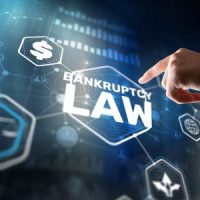Which is Better: Chapter 7 or Chapter 13?

Debtors with excessive unsecured debts, like credit cards, usually file Chapter 7. Debtors with unpaid secured debts, like past due mortgage payments, usually file Chapter 13. Though they go about it in different ways, both these kinds of consumer bankruptcy accomplish the same goal , which is giving honest yet unfortunate debtors a fresh start. As outlined below, these two kinds of bankruptcy are similar in many ways.
The Chapter 7 or Chapter 13 question may be the most important question a family faces, at least in terms of financial matters. A Chicago bankruptcy lawyer does much more than fill out forms. Only a lawyer gives debtors the solid legal advice they need to make good choices for themselves and their families. This level of service, which is unavailable elsewhere, makes a huge difference.
Chapter 7 Basics
As soon as debtors file their voluntary Chapter 7 petitions, bankruptcy’s Automatic Stay usually takes full effect. Section 362 of the Bankruptcy Code blocks most creditor adverse actions, such as:
- Foreclosure,
- Collections lawsuits,
- Repossession,
- Wage garnishment, and
- Eviction.
Usually, the Automatic Stay remains in effect until the bankruptcy judge closes the case, which is usually about six months after the filing date.
About six weeks after filing, debtors meet with the bankruptcy trustee (person who oversees a bankruptcy for a judge). Chapter 7 341 meetings (named after a section in the Bankruptcy Code) are usually perfunctory. The trustee normally only verifies the debtor’s identity and reviews a few financial documents, such as tax returns and insurance policies.
Assuming the trustee sees no red flags which indicate fraud or other such trouble, the trustee normally recommends discharge. The judge’s discharge order erases most unsecured debts, such as:
- Credit cards,
- Payday loans,
- Medical bills,
- Business loans, and
- Apartment leases.
The discharge order does not affect the collateral consequences of debts. If Sam owes three months back rent, bankruptcy discharges (erases) the debt. However, his landlord can still evict him, once the Automatic Stay expires, unless a Chicago bankruptcy lawyer makes other arrangements.
Chapter 13 Basics
The basic structure of a Chapter 7 (Automatic Stay, 341 meeting, and unsecured debt discharge) also applies in a Chapter 13. However, some differences exist, mostly because Chapter 13 serves a different purpose, as mentioned above.
The Automatic Stay usually blocks repossession and foreclosure, regardless of the amount of delinquency. But the bank can bypass the Automatic Stay if the debtor threatens the collateral. If Sam posts a Facebook note about smoking in his apartment, his landlord could use that post to bypass the Stay.
Next, at the 341 meeting, the trustee’s main job is to set a debt consolidation payment amount. The protected repayment period usually lasts five years, during which the Stay remains in effect. The monthly payment must be large enough to pay all allowed claims (mostly secured debt arrears), plus costs and fees, before the judge closes the bankruptcy.
Financial circumstances usually change during the protected repayment period. If these changes affect the ability to make the debt consolidation payment, a Chicago bankruptcy lawyer usually files a motion to modify the payment.
These two kinds of bankruptcy usually end the same way, with a discharge order that erases unsecured debt and a fresh start for your family.
Connect With a Savvy Cook County Lawyer
No matter what kind of financial problem you are having, bankruptcy could be a way out. For a confidential consultation with an experienced bankruptcy attorney in Chicago, contact the Bentz Holguin Law Firm, LLC. Our main office is conveniently located near Union Station.
Source:
uscourts.gov/court-programs/bankruptcy/bankruptcy-basics/chapter-7-bankruptcy-basics


